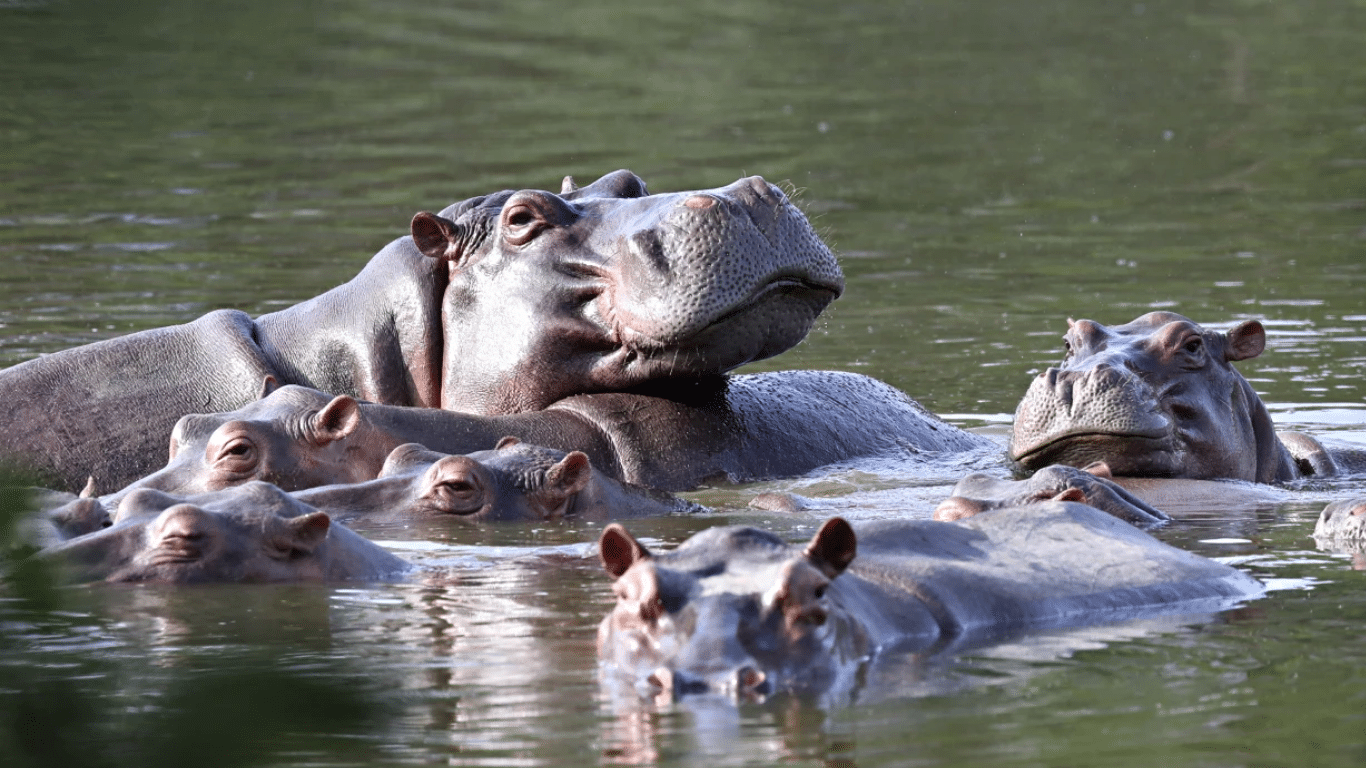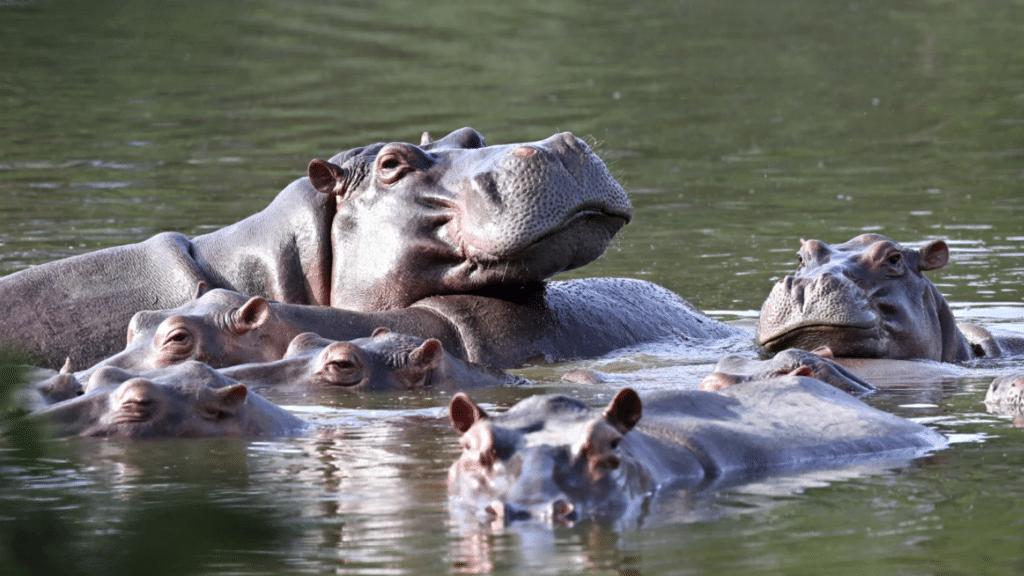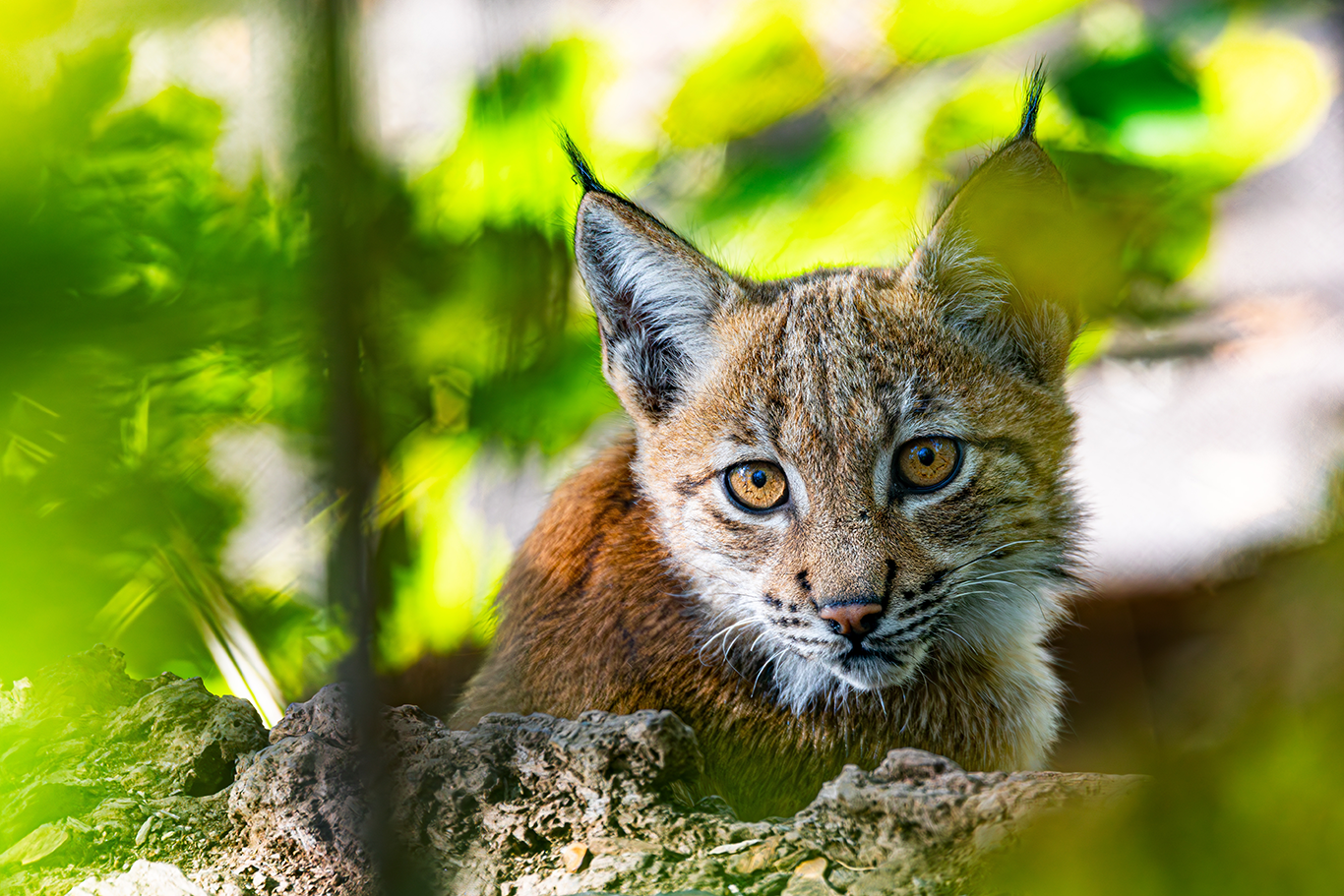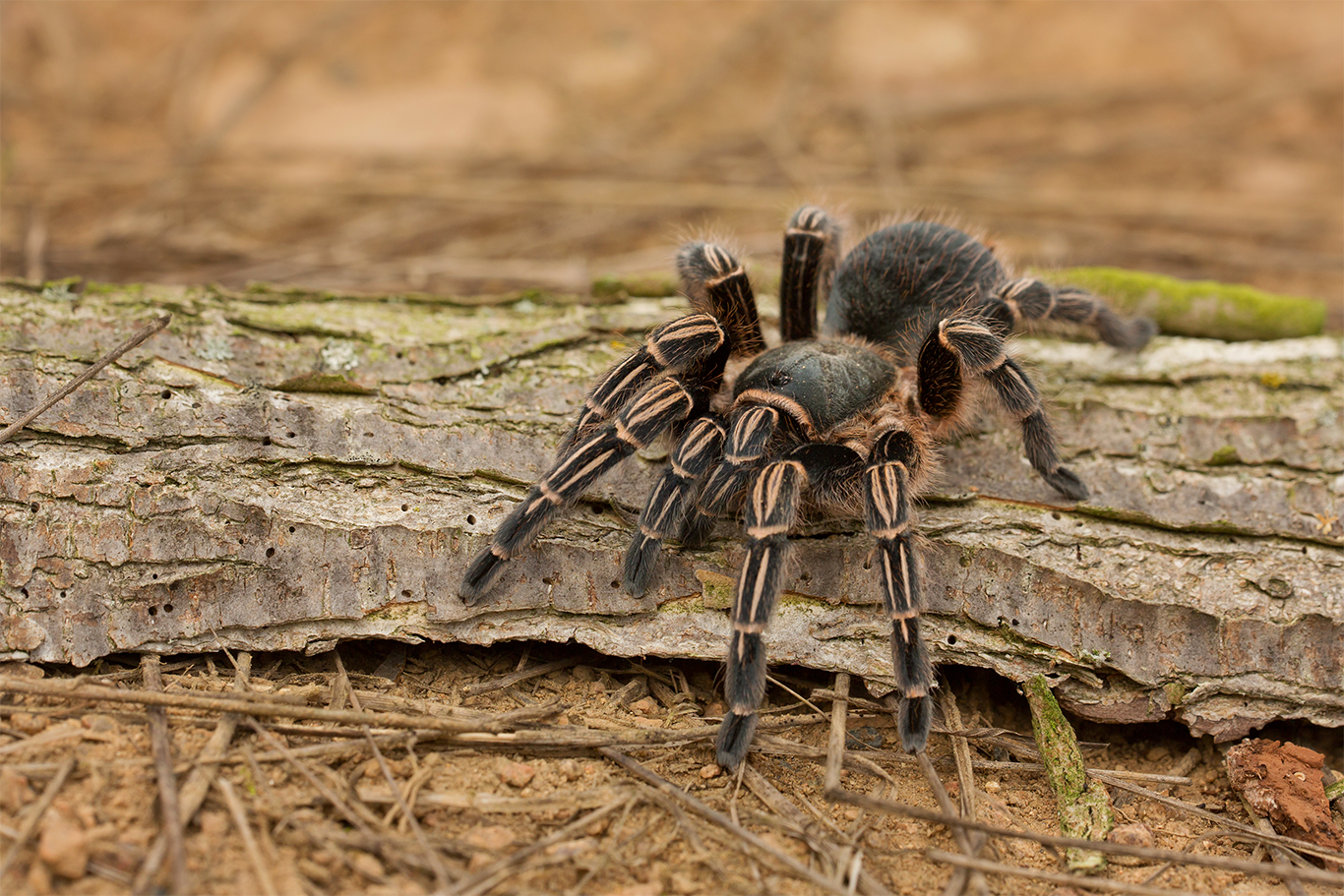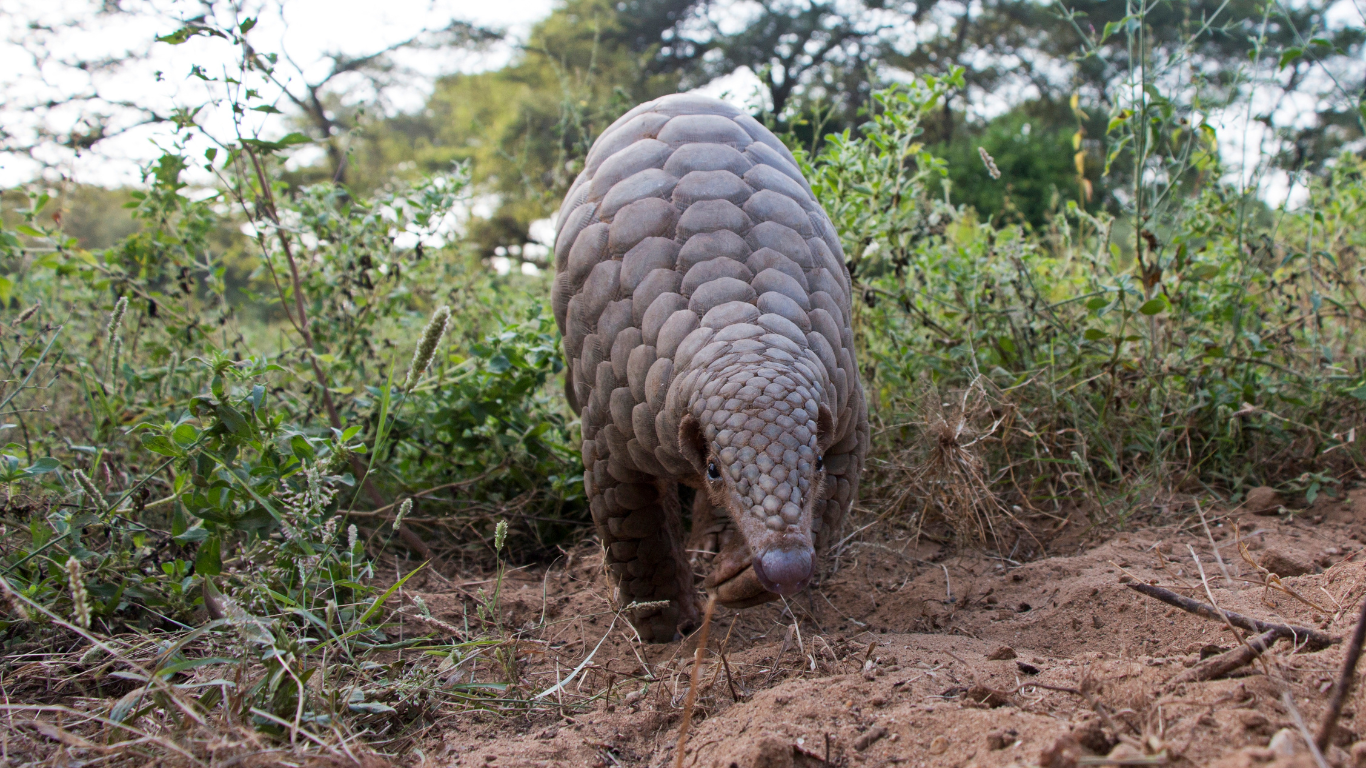Thanks to a dead drug lord, Colombia is now home to the “biggest herd of hippos outside of Africa,” says veterinarian and conservationist Carlos Valderrama (BBC News). The threat the animals pose to both public safety and the environment has fueled a global debate among scientists and animal welfare activists. While every effort is being made to ensure that their soaring numbers are brought under control, some people are calling for them to be killed.
Pablo Escobar, former head of the Medellin Cartel, was the most notorious drug trafficker of his time. However, his cocaine trafficking is not the only troubling legacy he left behind.
Having amassed a massive fortune from his drug empire, Escobar constructed a private menagerie on his Hacienda Nápoles estate in Antioquia, Colombia. Here, his personal collection of exotic wildlife comprised elephants, flamingos, giraffes, hippopotamuses, kangaroos, ostriches and zebras. Following his death in 1993, most of the animals were transferred to neighboring zoos.
Excluded from this relocation project, however, were the hippos. It was believed the animals would eventually die off and could therefore be left alone, but this could not have been further from the truth. With no natural predators or seasonal Sub-Saharan African droughts to diminish their numbers, the hippos thrived.
What began as just four hippopotamuses secured within the walls of Escobar’s estate has multiplied at an alarming rate over the last 29 years. Today, an estimated 80 to 120 hippos call the Magdalena Medio home.
South America may be an ideal habitat for hippos, but hippos are not ideal for South America. The first risk is in Colombia’s main river, the Magdalena; while hippos happily bask in the water, toxic bacteria in their feces contaminate the water. Moreover, the hippos also endanger native animals such as the West Indian manatee. Lastly, these 3,000-pound territorial animals pose a significant threat to the lives of Colombian people.
This is why a cull is being proposed, but there are two sides to every story; ecologist Arian Wallach puts it well, arguing that the hippos are a “story of life’s resilience” (NPR), and deems Colombia’s hippos worthy of protection. According to NGO International Union for Conservation of Nature (IUCN), hippos are considered a vulnerable species.
Animal Survival International is opposed to killing the hippos. The hippos are nothing more than the innocent victims of displacement, yet another example of the disastrous consequences of the illicit wildlife trade. Decades ago, a handful of their ancestors were ripped away from their natural habitat and smuggled across the globe to a foreign land. Today, between 80 and 120 of them remain trapped in an environment where they do not belong, and while it’s not that simple to book them a one-way ticket home, there are alternatives to slaughtering them.
A sterilization program for the hippos is already underway in Antioquia, Colombia. Led by the region’s environmental agency, Corporación Autónoma Regional Rionegro-Nare (CORNARE), doses of the chemical contraceptive GonaCon have been administered to 24 of the hippos via blow dart. These doses were donated to the Colombian government by the United States Department of Agriculture (USDA)’s Animal and Plant Health Inspection Service (APHIS).
Before the previous effort was abandoned on the basis of expense, time and safety, 11 of the hippos were surgically sterilized. GonaCon, on top of being a much cheaper alternative, is effective in both male and female hippos. However, the drug has its own complexities as it is typically used to control the populations of much smaller animals such as horses and deer. To ensure effective sterilization, CORNARE will be administering a second and third dose over the next 10 years.
This is a long-term project that is going to require substantial research and close monitoring by CORNARE.
Banner image: Fernando Vergara / AP file

